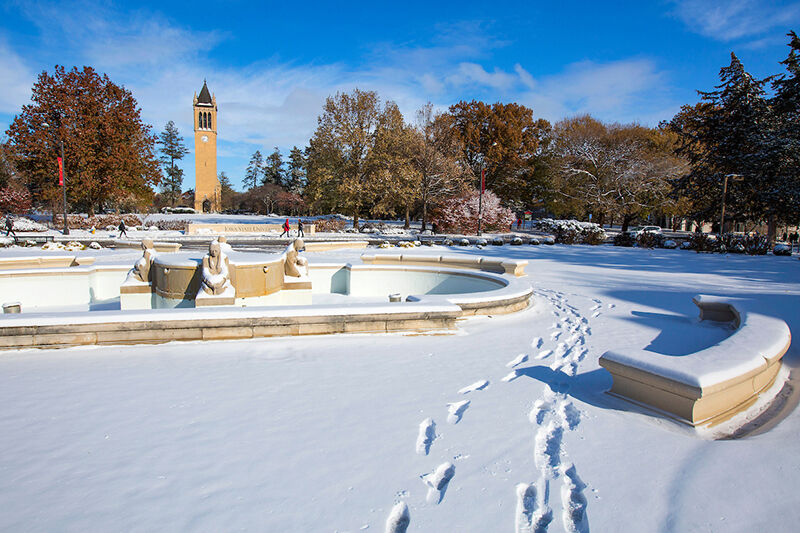‘More than just a college-educated man’: One student’s journey with NPHC
Jonathan Hall is a member of the Alpha Phi Alpha fraternity and president of the National Pan-Hellenic Council.
February 24, 2021
Jonathan Hall received a scholarship toward attending college as a senior in high school from an alumni of the Chicago chapter of Alpha Phi Alpha. Little did Hall know, he would become the future president of both the Alpha Phi Alpha chapter and the National Pan-Hellenic Council (NPHC) at Iowa State.
Hall, a senior civil engineering major and the current president of Alpha Phi Alpha and NPHC, entered college knowing he wanted to stick to his background and values. He chose to not go through with recruitment within the Interfraternity Council.
Instead, Hall found himself at Destination Iowa State (DIS) his freshman year before school began.
Much like many other freshmen at Iowa State, Hall was trying to find his place and somewhere he felt comfortable to be himself. At DIS, he stumbled upon a table put on by the NPHC. The men behind the table immediately caught his attention as someone Hall wanted to be friends with.
They got to having a conversation and right off the bat built great camaraderie and energy together.
“For a long time after I went to DIS, they would invite me over for breakfast every weekend,” Hall said. “I just loved how I felt so comfortable with them.”
Hall started to pique interest in their brotherhood and the significance of their Greek lettering.
He remembers he didn’t even know what the National Pan-Hellenic Council was until he arrived at Iowa State.
Iowa State’s National Pan-Hellenic Council is comprised of historically African American fraternities and sororities at Iowa State. Iowa State is home to six of the nine NPHC organizations, which are often referred to as the “Divine Nine.”
Each organization within the Divine Nine was established on the building blocks of brotherhood and sisterhood, leadership, service to the community and high scholarship.
“We add our own flavor in our different individual chapters, but when we come together it’s like an undeniable magic that we all possess,” Hall said.
Alpha Phi Alpha was having an informational meeting Hall’s freshman year. The dress code was business attire, which was something Hall did not have much of at the time. Instead of not going and forgetting about the opportunity at hand, one of the members of Alpha Phi Alpha reached out to Hall and gave him a personal learning session.
The members of Alpha Phi Alpha didn’t want that to be the reason that stopped Hall from joining their fraternity.
“To me that meant a lot, he could have just brushed it off and set me aside, but instead he took me under his wing and made an exception for me,” Hall said.
He began to learn about the history of the Divine Nine, their notable members and the values the organizations hold. Hall became a member of Alpha Phi Alpha the spring semester of his freshman year.
Alpha Phi Alpha was the first intercollegiate Greek letter fraternity established for African American men, founded in Ithaca, New York, at Cornell University.
The fraternity has identified three areas of focus they want to dedicate their time and research to. Their first area of focus is to help special initiatives that are affecting the African American community. The second area of focus is the national programs they support to help voter engagement, education, mentoring and elder care. The third area of focus for Alpha Phi Alpha is furthering their economic and charitable agenda to enhance the lives of those in their communities.
“It was very important for me to be seen for who I am,” Hall said.
After joining Alpha Phi Alpha, he said he began to see what it was like to be surrounded by men who were not only as like-minded as him, but also shared some of the same ancestry, background and cultural values Hall grew up with.
Within the last year, Hall has been thankful more than ever for the bonds he has created with his brothers.
“I talk to them every day and wouldn’t be the man I am today without their support,” Hall said. “They see me as more than just a college-educated man. They see me as a college-educated Black man trying to grow into something greater.”







